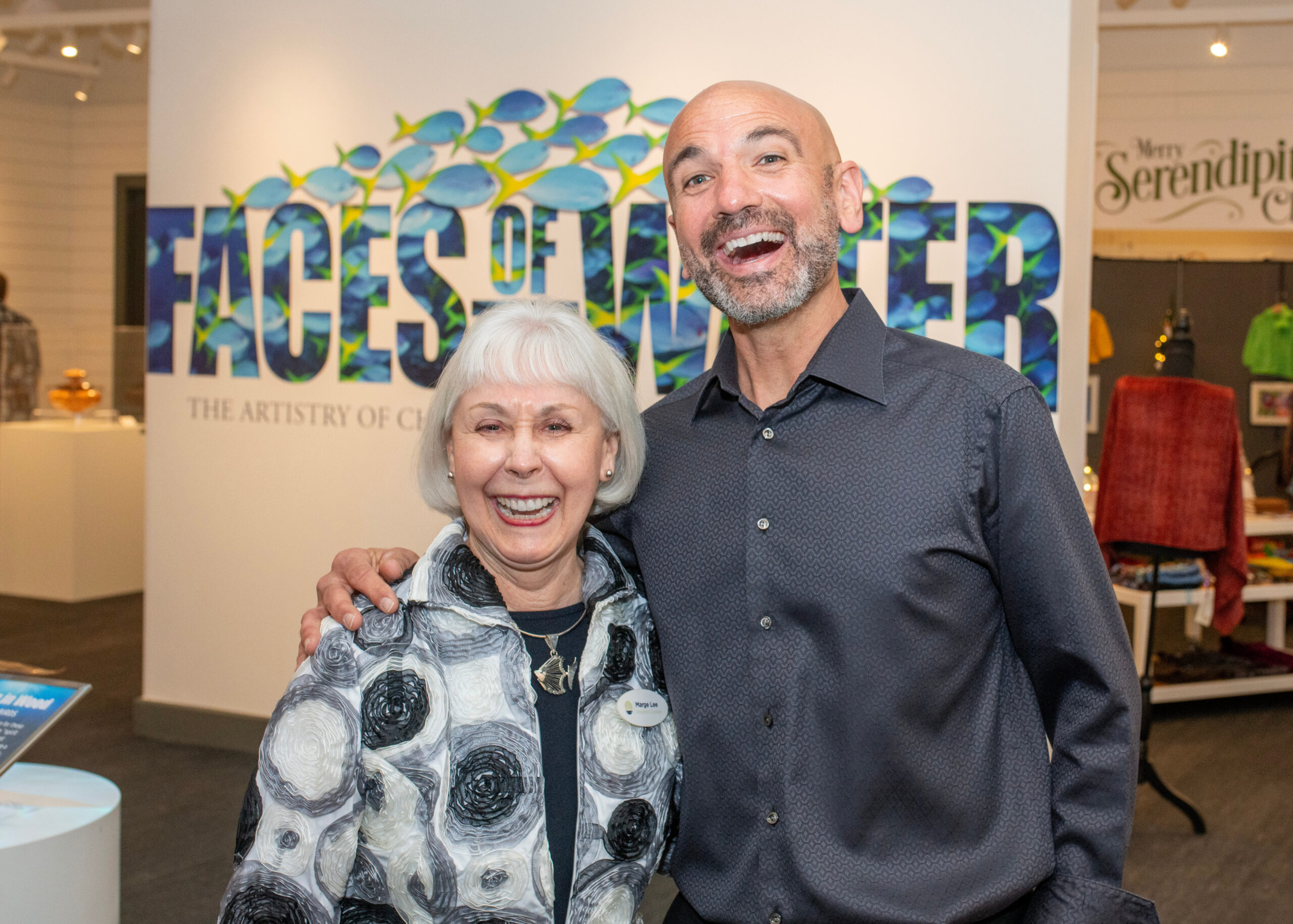Shell Point’s WWII Veterans Have Stories to Tell
FORT MYERS, FL (May 19, 2001) – May is a month of remembrance, with two important holidays dedicated to the men and women who served our country in times of conflict. Armed Forces Day, celebrated this year on May 19th, has saluted all branches of the armed forces since its inception in 1949, when the services were unified under the Department of Defense. Memorial Day honors the nation’s armed services personnel killed in wartime and was first observed in 1868 as a salute to those lost in the American Civil War. This year, the holiday is on Monday, May 28th.
The following articles, which recognize several of Shell Point’s veterans, were originally printed in the March issue of the Land & Sea Journal and are reprinted here in an abridged version.
From the Blitz to Bermuda on a Secret Mission
In 1940 London, Hitler’s bombs rained down on the city both day and night. In the midst of this deluge, a young woman who worked for the British government was called into the office of her supervisor. Olivia Pearce was a petite woman with wavy blond hair, a beautiful smile and (you couldnÕt help but notice) gorgeous legs. In all seriousness, he looked her straight in the eye and asked if she would be willing to sign with the office of British Intelligence and Censorship and accept a mission that would require her to travel from London to Bermuda.
(photo at right) Olivia and new husband Robert Duane at their wartime wedding.
What many people may not have realized during the years of World War II is that letters traveling around the globe (regardless of their points of origination or destination) almost always went through the small island of Bermuda. In an attempt to expose spies, who were providing information to the Third Reich in its savage attack on Britain, a team of intelligence agents would be stationed on the island to review all of the mail headed for England.
Olivia was to be on the first team of people who would travel to Bermuda for this purpose. She and the other members of the team were put through extensive training during a six-week period. They were told that under no circumstances were they to tell anyone where or when they were going. Finally, in the middle of the night, they were loaded onto a passenger ship along with a number of British troops. It was necessary for their ship to be escorted across the Atlantic by a 25-ship naval convoy.
“At that time, we thought that surely anything would be safer than London during the Blitz,” said Olivia. “But we were wrong.”
Once the group made it out onto the high seas, they were immediately attacked by German submarines. One by one, the convoy ships were sunk. The passenger ship that Olivia and her fellow workers were traveling on soon had to defend itself by shooting its own torpedoes. The passenger ship never made it to Bermuda but was diverted instead to Nova Scotia. From there the group had to be flown by RAF planes to their island destination.
“You have to imagine what it was like,” she said. “We were part of the first contingent to be sent to Bermuda and we were understaffed. There was no day or night. We worked 24 hours a day, seven days a week. At one point, I found myself waking up at my desk and people around me said that I had been asleep for two solid days. It was exhausting, but we knew we were providing a critical service to our country and we couldn’t let up.”
After months of hard work, several suspicious letters came through. On the surface they seemed innocent enough and appeared to be simple family correspondence. However, the similarity of the letters, which were addressed to a variety of people in different places, made the examiners suspicious. The letters were coded and it was discovered that one of the largest spy rings in existence was operating through the mail system and using these letters to send messages. A plan was formulated to hold the letters back until the instructions they contained became useless, then they were released.
In a state of flux, the spy ring, not knowing that their letters were being intercepted, called a meeting of all their members to be held in New York City at a set time and place. These letters were sent through immediately to all of the intended recipients and when the members of the spy ring converged for the meeting, they were surrounded and captured. “It was a very exciting finish to our work, but it took a lot of people and a lot of patience to bring it to its conclusion,” recalled Olivia.
Following Olivia’s two and a half-year stint in Bermuda, she was transferred to Calcutta, India. At the end of the war she was sent to Japan. It was there that she met a handsome Commander in the United States Navy named Robert Duane. The couple immediately hit it off and married six weeks later. As the wife of an American, Olivia could no longer work for the British, so she received permission to transfer to General McArthur’s headquarters and go to work for American Intelligence, under General Willoughby. In 1949, The Duanes moved to America when Robert accepted a post with the State Department in Washington, D.C., which he held for 39 years and received a number of commendations for his accomplishments. Olivia became a homemaker and they had two children.
Even after all these years, it is difficult for Olivia to share her memories of the war and her involvement with British Intelligence and Censorship. “Our motto was, ‘We hear, we see, we do not speak’ and even though the 25-year requirement of silence has long passed, I still feel responsible for maintaining that code.”
Courage Under Fire
Pulled from his job at “White Plains, New York’s very first supermarket,” 25-year old Vernon Sherwood was drafted to join the Army on March 4, 1239. Happy and excited to serve his country, the young Private trained in Ft. Benning, Georgia, with 150 other raw recruits in the 4th Medical Battalion of the 4th Motorized Division. With no medical background, they were to be the “collecting” company. Their mission: follow the combat troops in ambulances and rescue units, collect the injured and return them to the base camp for medical attention.
In the fall of 1942, his group was renamed the 4th Infantry Division and received amphibious training at Camp Gordon Johnson in Florida’s Panhandle. Next stop — Camp Kilmer, NJ, the debarkation point for Europe. Unsure of their next destination, the soldiers were packed like sardines on the Capetown Castle, a converted British luxury liner. They spent the next 13 days “playing cards, worrying about submarines and eating a lot of canned figs.”
Upon their arrival in Exeter, Devonshire, England, they spent weeks making “dry run” practices, loading equipment into boats, moving around in the dark waters of the English Channel and making dawn landings on deserted beaches. On the night of June 5, 1944, the men were given a letter of encouragement from General Dwight D. Eisenhower. Listening to air support passing overhead on bombing runs, the troops were “up.” They had been training for months and months and, although they had no combat experience, felt confident they were ready to go into battle, all the time wondering if they’d live to see another sunset.
When dawn arrived on June 6th, they made their landing on Utah Beach. Fortunately, the landing was much quieter than for those who landed on Omaha Beach. Since the first wave mistakenly landed 2,000 yards south of the targeted beach, it was not heavily defended and plans were changed to land the remaining troops on the new beach. Unarmed, Sherwood’s men swarmed over a 4-foot retaining wall and on into France, where they eventually joined the remainder of Army and airborne divisions scattered across the front.
Seeing action in the five major battles in Europe earned Sherwood five Battle Stars, two Bronze Stars and a Bronze Arrowhead commemorating the D-Day Invasion. But his Purple Heart was sadly earned just a month before the war ended. Setting out in a jeep with a driver and interpreter to find a group of Germans who supposedly wanted to surrender, the men hit a land mine that killed the interpreter and badly injured the driver and Sherwood. Five days later, he awoke in a hospital in France, not knowing to this day how he had been rescued. That stay in France was the beginning of his long and painful rehab – a journey of operations, plastic surgery and skin grafts on his face and legs that would finally end in March of 1948 – three years after the fateful day in Bavaria he’ll never forget.
While in rehab at Valley Forge Army Hospital in Phoenixville, PA, he met and fell in love with an Army WAC stationed there. She later became his wife and they eventually had two children. At his discharge, he was on 100% disability and struggled with his injuries, a new family and no job. But as was typical of the many heroes who have similar stories, his courage prevailed, landing him a job back with the Army, where he spent the next 25 years teaching Communications at the Army Signal School in Ft. Monmouth, NJ. His students took the skills he taught and used them to make their own heroic contributions in Korea and Vietnam.
Battles at Sea
Another resident, Alfred Whittaker, recorded his WWII memories in the book he wrote for his children, entitled Life’s Interludes. In his own words, the book “highlights a period of my life, which, in a sense, could be viewed as an interlude – a time interval almost totally unrelated to life both before and after. The impetus for writing the book grew out of the first reunion of the officers of the Destroyer U.S.S. WREN (DDD568) held in October, 1985.”
Whittaker’s experiences as Ensign in the U.S. Navy began while listening to the radio on the afternoon of December 7, 1239 – the day Japan bombed Pearl Harbor. He was married, about to become a dad and ready to graduate from New York University. He faced a huge decision – to enlist or wait to be drafted. When he heard about a three-month training and indoctrination Navy program offering an officer’s commission to college grads, he enlisted.
Trained as a Communications Officer (in charge of radiomen, radarmen, signalmen and all related equipment), he was assigned to a brand new destroyer, the U.S.S. WREN. For the next six months, he and the WREN men patrolled the waters as part of the Northern Pacific Task Force, based at Adak Naval Base in the Aleutian Islands. In Destroyer Squadron 57, they saw action in Kurile Islands (north of Hokkaido, the northernmost of the three main islands of Japan) and throughout the northern Pacific. They eventually joined the Fifth Fleet (Fast Carrier Task Force 58), under the command of Admiral James Halsey. Task Force 58 was instrumental in moving the forces closer and closer to Japan, first at the infamous Battle of Iwo Jima and later at Okinawa. Their job was to “soften up (by shelling)” the Japanese ground forces holding the islands prior to landings by the U.S. Marines and Army and to protect the troops from air attack once they had landed.
His book picks up the story: “For 21 days after the landing at Iwo Jima, the Marines fought intensively and valiantly against a fierce, maniacal enemy who was committed to fight to the death and, in the process, extract the highest possible price. The American flag was raised on Mt. Surabachi on the morning of February 23, 1945, but the island was not considered secure until March 16th.”
Then on to Okinawa: “Easter Sunday, April 1, 1945, signaled the beginning of a battle involving the greatest Naval armada ever assembled – as 1,321 ships carrying 183,000 assault troops – steamed into Japanese waters.” The battle was long and difficult. Then, “on June 21, 1945, 82 days after the landings at Hagushi, the conflict at Okinawa came to a close. There were 12,281 Americans killed, almost half of which were Navy personnel. One out of every seven casualties in WWII occurred at Okinawa.”
Finally, “on August 14, 1945, Admiral Halsey turned rumors into reality with his announcement that the Japanese had officially surrendered.” The WREN and her men were spared and finally returned home December 23, 1945. That day, Lt. Jr. Grade Whittaker experienced “the most joyous and thrilling moment of my life,” the reunion with his wife Marion. The transition to civilian life occurred quickly and painlessly, when Whittaker joined Benton and Bowles Advertising Agency as a market researcher – a most welcome end to his Life’s Interlude.






